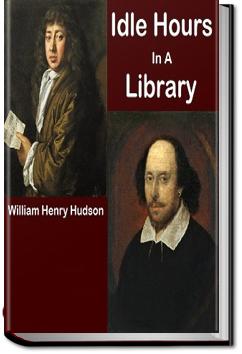UNLIMITED Audiobooks and eBooks
Over 40,000 books & works on all major devices
Get ALL YOU CAN for FREE for 30 days!
Idle Hours in a Library
William Henry Hudson
Book Overview:
“[these essays on Shakespeare, Pepys, Restoration novels, and bohemianism]—the results of many hours of quiet but rather aimless browsing among books, and not of special investigations, undertaken with a view to definite scholastic ends. They are, moreover, as will readily be seen, completely unacademic in style and intention.”
“[these essays on Shakespeare, Pepys, Restoration novels, and bohemianism]—the results of many hours of quiet but rather aimless browsing among books, and not of special investigations, undertaken with a view to definite scholastic ends. They are, moreover, as will readily be seen, completely unacademic in style and intention.”
How does All You Can Books work?
All You Can Books gives you UNLIMITED access to over 40,000 Audiobooks, eBooks, and Foreign Language courses. Download as many audiobooks, ebooks, language audio courses, and language e-workbooks as you want during the FREE trial and it's all yours to keep even if you cancel during the FREE trial. The service works on any major device including computers, smartphones, music players, e-readers, and tablets. You can try the service for FREE for 30 days then it's just $19.99 per month after that. So for the price everyone else charges for just 1 book, we offer you UNLIMITED audio books, e-books and language courses to download and enjoy as you please. No restrictions.
The citizens lived for the most part at their shops or places of business; the gentlefolk were more distributed. Some still had their habitations in the commercial portions of the city, and those of them who regularly lived in the country and came to town during term-time—which the. . . Read More
Try now for FREE!

"Love your service - thanks so much for what you do!"
- Customer Cathryn Mazer
"I did not realize that you would have so many audio books I would enjoy"
- Customer Sharon Morrison
"For all my fellow Audio Book & E-Book regulars:
This is about as close to nirvana as I have found!"
- Twitter post from @bobbyekat


